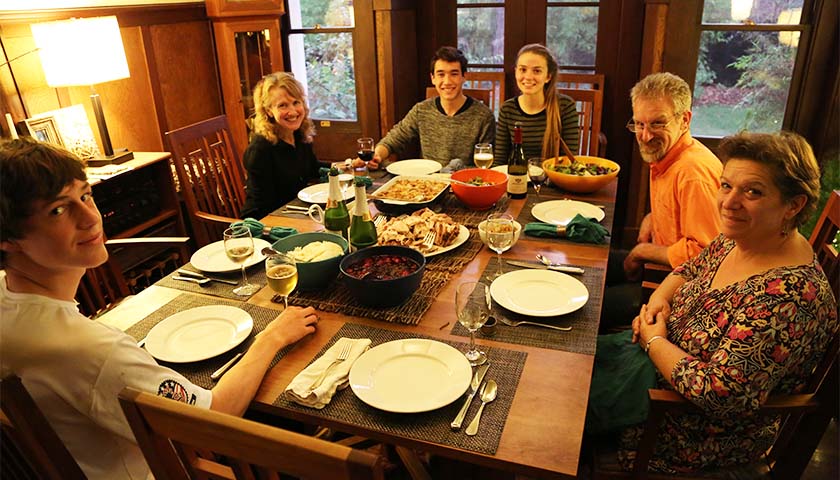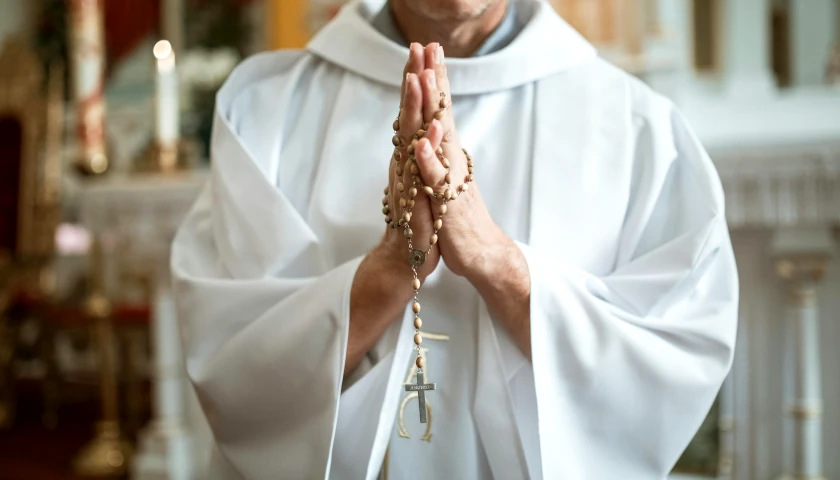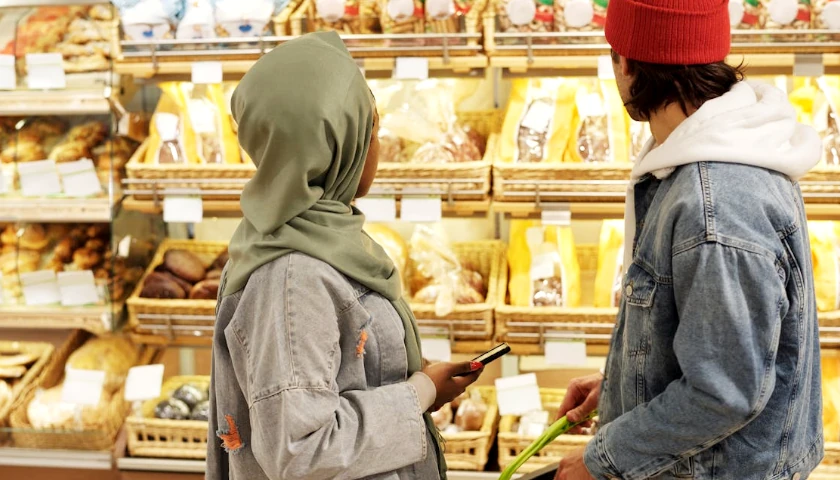by Alexa Schwerha
Two University of Oregon alumni spearheaded an hour-long discussion Thursday titled “Thanks, But No Thanks-giving: Decolonizing an American Holiday.”
The event description promoted the virtual workshop as a discussion about how we can “continue to show gratitude while raising our critical consciousness and identifying ways to decolonize the holiday.”
“The main messages are that of gratitude, food, and family; however, Thanksgiving is, foundationally speaking, a celebration of the ongoing genocide against native peoples and cultures across the globe,” the description reads.
Alumna and activist Dakota Maccoll and Native American Liaison University Counselor Jorney Baldwin, a university Native American Liaison, led the conversation, which began with the playing of the University of Oregon Land Acknowledgement.
During the presentation, attendees were encouraged to reflect upon their own experiences with Thanksgiving, and how they can “Indigenize” the holiday.
“I’ve begun healing from Thanksgiving by going into the woods and camping, harvesting, meditating, and reading,” one participant said.
Maccoll recounted her own holiday plans, detailing her intent to observe the National Day of Mourning by visiting Alcatraz.
The presentation also discussed colonialism and the use of language.
“Settler colonialism requires an ongoing violence against Native American people,” the presentation read. “Many narratives obscure this by speaking of this violence in the ‘distant past.’”
“I think it’s important to recognize,” Baldwin said. “That’s why I really like our land acknowledgement going into this presentation because it really connects to how land is embedded within all of our history.”
The bulk of the event was spent in an open platform where attendees had the opportunity to share their thoughts about three primary discussion points:
- What might it look like to decolonize our understanding of this holiday and the cultures surrounding it?
- What can we do this Thanksgiving to begin to reconcile relationships damaged by colonization, both human to human, and human to earth?
- How can we do this in such a way that it encourages folks to partner, rather than ostracise, while speaking truth to power? How does inviting diverse perspectives play into this?
Participants offered a variety of responses for how a decolonized holiday would function, including researching and discussing “who’s land you’re on” and “which territory the family is celebrating in/occupying”.
One attendee suggested keeping the traditions of Thanksgiving, such as giving thanks and feasting with family, but celebrating on a separate day.
Other ideas of alternative activities to replace the run-of-the-mill Thanksgiving include foraging, spending time in nature, and self-education.
Lastly, one attendee recounted her experience in Seattle, where the grassroots initiative “Real Rent Duwamish” encourages residents to pay reparations to the displaced Duwamish tribe.
One participant said:
“They accept payments from settlers on their land, and that’s not something every community or every tribe or every nation has, but I think there are a lot of amazing community organizations, and many different nations, have put together that, on a day that is very difficult for a lot of us. Thinking about that, thinking about how you can do something in the spirit of reparations, centering native people and putting your money where those acknowledgements are is something that I sometimes tell my non-native counterparts.”
This idea generated support from the comment section, with another participant affirming a similar thought.
“I was thinking the same thing, reparations in the form of money.”
Campus Reform has reached out to both Maccoll and Baldwin for comment, as well as the university. The article will be updated accordingly.
– – –
Alexa Schwerha is the Regional Field Coordinator at Leadership Institute for Texas and New Mexico. She attends Kent State University and is studying Communication Studies and Political Science. On campus, she served on the executive board of the Kent State Turning Point USA chapter, founded Students for Trump at Kent State, and was the Campaign Liaison for the Kent State College Republicans.
Photo “Family Thanksgiving” by Malcolm Slaney. CC BY 2.0.




